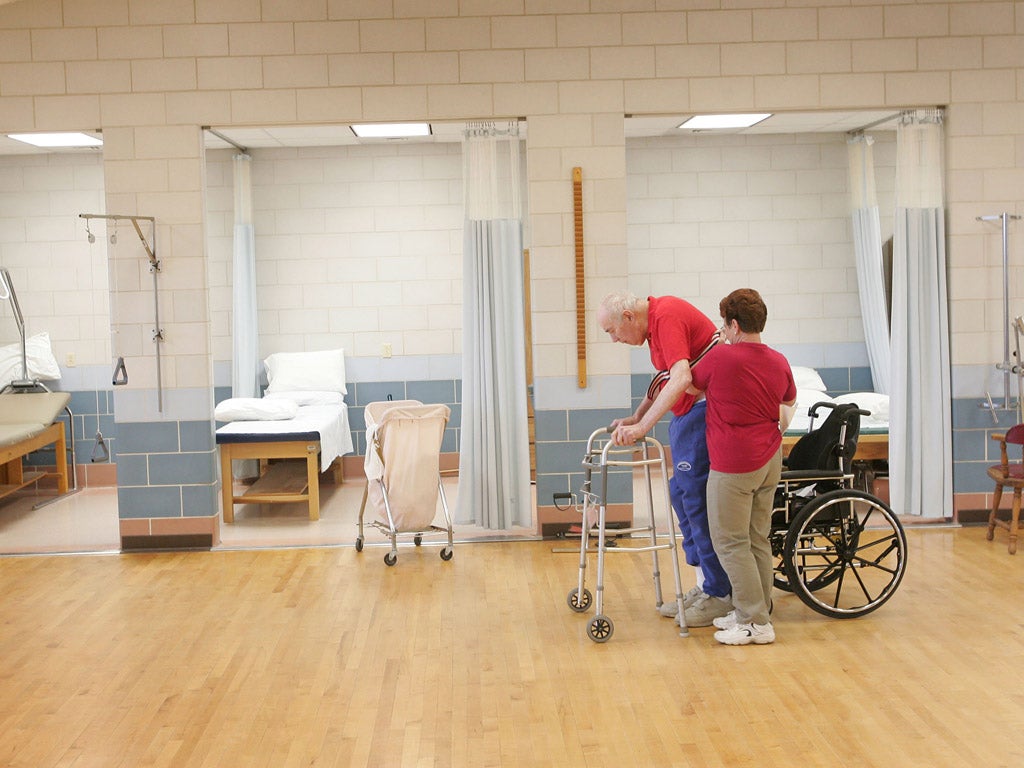Who cares for our carers?
Vulnerable people need someone acting as an advocate in their corner - whether it's someone in care without family, or the carer on a zero hour contract

Your support helps us to tell the story
From reproductive rights to climate change to Big Tech, The Independent is on the ground when the story is developing. Whether it's investigating the financials of Elon Musk's pro-Trump PAC or producing our latest documentary, 'The A Word', which shines a light on the American women fighting for reproductive rights, we know how important it is to parse out the facts from the messaging.
At such a critical moment in US history, we need reporters on the ground. Your donation allows us to keep sending journalists to speak to both sides of the story.
The Independent is trusted by Americans across the entire political spectrum. And unlike many other quality news outlets, we choose not to lock Americans out of our reporting and analysis with paywalls. We believe quality journalism should be available to everyone, paid for by those who can afford it.
Your support makes all the difference.It has been four months since Mum died. Recently I bumped into one of her former carers.
Sue* looked exhausted. Working for the care company had clearly taken its toll.
On a zero hour contract, she told of the difficulties of being at the total whim of the managers regarding hours. So she could get a day packed with back to back calls or get a couple of hours of work in the morning then a gap of four hours before again getting stacked up calls into the evening.
She told how often she wanted to stay longer to get the job done but there was the pressure to get in an out as quickly as possible.
The final care company that we had for Mum were on the whole pretty good, they provided the care and had a decent oversight process. But they still employed their workers on zero hour contracts that no doubt burned many of them out, as seemed to be the case with Sue.
There has been much talk recently about the length of calls, with a fixation on 15 minute calls as not being sufficient for care needs. This can of course be the case but there are other times when the call could be less. If it is literally a toilet call, where the carers are coming at a specific time to see if the person wants the toilet and they don’t then the call can be less than 15 minutes.
Generally, the experience with Mum with care in the home worked out fairly well, though the burden increased all the time as she became more helpless. Had she come out of hospital rather than dying there, the next stop would have been a care home.
Our family had experience of care homes for the last 3.5 years of my Dad’s life. He had dementia, which got steadily worse over the last five years of his life. Dad spent just over a month in his first care home, then he went onto two others spending around 18 months in each. He moved home as the need for more specialised care for the dementia condition increased.
These homes were generally good, though again the concern had to be how the staff were treated and the desire to obtain maximum return from the clients. One example with Dad concerned a proliferation of haircuts.
In one memorable exchange, I suggested Dad had less hair than he’d ever had and yet was having more haircuts than ever. I could see what was happening, the home were receiving the £700 a week plus for care but obviously sought out other income streams. Haircuts, nails and other things fitted these extras. They were of course justified on the basis of the dignity of the person. A valid argument, but also one that can be used to increase the bill.
There are a number of lessons to be drawn about care both at home and in nursing homes. The first is the need for the vulnerable person to have someone acting as an advocate in their corner. An individual who will stand up with the care company, home or hospital.
I largely did this for my Mum and Dad but it was always worrying when seeing an elderly person with seemingly no friends or family. Who would fight their corner?
The other area is the whole treatment of care workers. These people do vital skilled work that should be valued by society. They should be treated as such, not as some sort of modern day slave on zero hours contracts. It is not right that carers should be on the minimum wage and casual contracts. They should be salaried, with decent wages and other conditions of employment like holidays and sick pay. This change in the employment relationship would change the whole care sector overnight.
The present approach of bringing in people training them up, exploiting them to burn out point and then no doubt getting rid of them is no way to run care in the UK today. Staff need to be treated properly and the whole sector needs regulation. Then maybe there could be a move toward a care sector that is fit for purpose in terms of dealing with our elderly population in the 21st century.
*Name has been changed
www.paulfdonovan.blogspot.com
Join our commenting forum
Join thought-provoking conversations, follow other Independent readers and see their replies
Comments